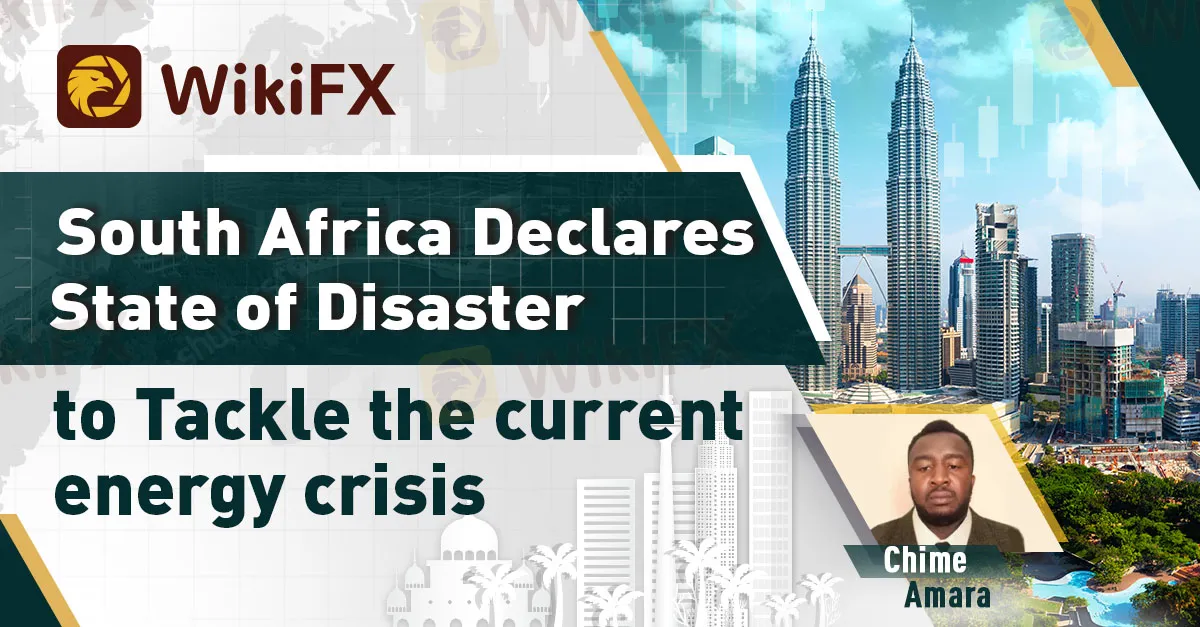简体中文
繁體中文
English
Pусский
日本語
ภาษาไทย
Tiếng Việt
Bahasa Indonesia
Español
हिन्दी
Filippiiniläinen
Français
Deutsch
Português
Türkçe
한국어
العربية
South Africa Declares State of Disaster to Tackle the current energy crisis
Abstract:The South African government declared a state of disaster to tackle the ongoing electricity crisis in the country.

By: Chime Amara

Pretoria, South Africa – The South African government declared a state of disaster last week to tackle the ongoing electricity crisis in the country. The announcement was made by the President of South Africa, Cyril Ramaphosa, who stated that the country is facing an unprecedented energy crisis that is affecting both the economy and daily life. The state of disaster will allow the government to mobilize resources more effectively to address the crisis.
The electricity crisis in South Africa is largely due to the aging infrastructure of the state-owned power utility, Eskom. The utility has been struggling to meet the electricity demand, leading to frequent power outages across the country, also known as “load-shedding.” The crisis has been compounded by financial difficulties faced by Eskom, which has been unable to invest in new power generation capacity, leaving the country with a shortfall in energy supply.
The state of disaster will allow the government to fast-track procurement processes to secure additional energy generation capacity. The government has also stated that it will explore alternative sources of energy, such as renewable energy, to help reduce the country's reliance on Eskom. The state of disaster will also allow the government to allocate additional resources to Eskom to help it address the maintenance issues and improve its financial position.
The announcement of the state of disaster has been met with mixed reactions from the public and business sectors. Some have welcomed the move, stating that it is necessary to address the crisis and secure the future of the country's energy supply. However, others have criticized the government for its slow response to the crisis and for failing to address the root causes of the problem.
In conclusion, the state of disaster declared by the South African government is a significant step in addressing the ongoing electricity crisis in the country. The government's focus on fast-tracking procurement processes and exploring alternative sources of energy will help to secure the country's energy supply and improve the reliability of the power grid. It remains to be seen how the state of disaster will impact the country and the measures that will be taken to address the crisis.

Disclaimer:
The views in this article only represent the author's personal views, and do not constitute investment advice on this platform. This platform does not guarantee the accuracy, completeness and timeliness of the information in the article, and will not be liable for any loss caused by the use of or reliance on the information in the article.
Read more

EUR/USD at a Critical Juncture: Can the 1.13 Level Hold?
EUR/USD is caught in a tug-of-war, with 1.13 acting as a pivotal level that may determine the next major move.

Warren Buffett’s 5 Golden Rules that Every Trader Must Know
Warren Buffett is one of the most successful investors in the world. He built his wealth through smart, patient decisions and a strong understanding of how markets work. Today, his advice is followed by investors and traders everywhere. Here are five simple but powerful lessons from Buffett that can help anyone grow their money wisely.

Futu Securities Launches Crypto Deposit Service for Investors
Futu Securities launches a crypto deposit service for Bitcoin, Ethereum, and Tether on its trading platform, bridging traditional and decentralized finance.

ASIC Releases New Regulatory Guidance to Support Buy Now, Pay Later Industry Reforms
The Australian Securities and Investments Commission (ASIC) has published a new regulatory guide aimed at assisting buy now, pay later (BNPL) providers in navigating their obligations ahead of new laws coming into effect on June 10, 2025. The guidance, titled Regulatory Guide 281: Low-cost credit contracts, provides critical information to help low-cost credit contract providers comply with their key responsibilities, including new, modified responsible lending obligations.
WikiFX Broker
Latest News
Promax Trading Exposed with Account Disabling and Scam Allegations
Who Are the Cybercriminals Behind the Darcula Phishing Network?
XNT Group Broker Review
Warren Buffett’s 5 Golden Rules that Every Trader Must Know
XM Marks 15 Years in Trading with New Product Launches and Events
Mastering Trading Psychology: Four Pillars of Mental Strength for Market Participants
Futu Securities Launches Crypto Deposit Service for Investors
EUR/USD at a Critical Juncture: Can the 1.13 Level Hold?
Meta Cracks Down on Scam Networks Targeting Brazil and India
Essential Features to Look for in a Trading Platform
Currency Calculator


